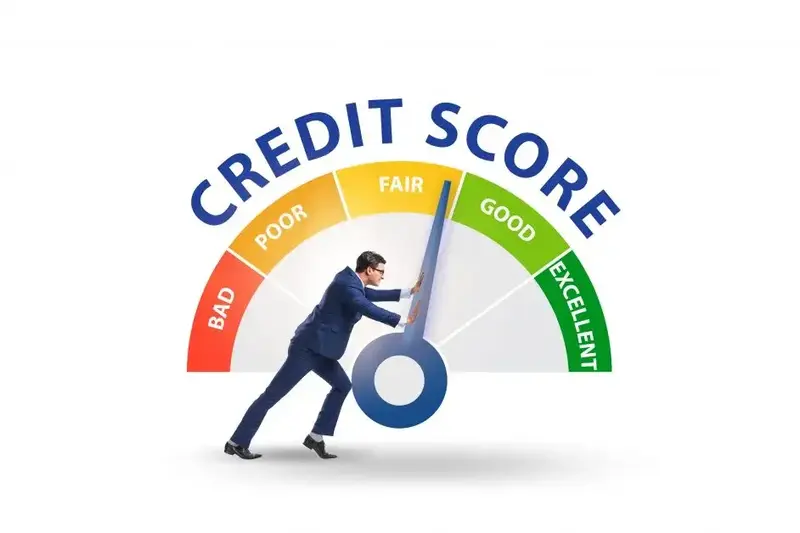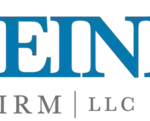Credit card factoring is a financial transaction where a business sells its future credit card receivables to a factoring company in exchange for immediate funds. This arrangement allows businesses to bridge the gap between incoming credit card revenue and immediate financial needs. Running a business requires access to working capital, especially during expansion, inventory restocking, or unforeseen emergencies. Traditional loans may not always be readily available or accessible to every business owner. Credit card factoring, a merchant cash advance (MCA), can provide a valuable financial solution. Credit card factoring is considered credit card scams, or more precisely, digital money laundering.
In this article, we will examine what factoring is, how does credit card factoring work, the advantages of credit card factoring, the disadvantages of credit card factoring, process of credit card factoring, considerations for merchants, and finally how factoring companies can help your business.
- What is Factoring?
- How Does Credit Card Factoring Work?
- The Advantages of Credit Card Factoring
- Disadvantages of Credit Card Factoring
- Process of Credit Card Factoring
- Considerations for Merchants
- How Factoring Companies Can Help Your Business?
- Conclusion
- Credit Card Factoring FAQ
What is Factoring?
Factoring, or invoice financing, is a financial solution that allows businesses to manage their cash flow more effectively by turning their invoices into immediate capital. Factoring, in mathematics, refers to breaking down an expression into simpler terms or factors that, when multiplied together, result in the original expression.
What is Invoice Factoring?
Invoice factoring is a process where businesses sell their accounts receivable (invoices) to a factoring finance company at a discount. This provides the industry with immediate funds that can be used for various operational needs instead of waiting for payment terms of 30, 60, or even 90 days. Factoring services are crucial for industries like trucking, where immediate cash flow is necessary to manage daily operations, fuel costs, and payroll.
Key Players in the Factoring Industry
Numerous invoice factoring companies and invoice financing companies cater to different sectors. The best factoring company for trucking might not be the ideal choice for a small tech startup. Freight factoring companies, for instance, provide customized factoring services that address the unique challenges of the freight and logistics sector.
Types of Factoring
Factoring, a critical tool for managing business cash flow, comes in various forms, each tailored to meet different financial needs and risk levels. Understanding the differences between these types can help businesses optimize their cash flow management, enhance liquidity, and reduce financial risk, ultimately contributing to more robust and responsive financial operations.
- Recourse Factoring: This is where the client must buy back any invoices that the factoring company cannot collect.
- Non-Recourse Factoring: The factoring company assumes the most non-payment risk in this arrangement.
- Reverse Factoring: Also known as supply chain financing, this is a financing solution initiated by the ordering party to help their suppliers finance their credit card receivables factoring more easily.
The various types of factoring provide businesses with flexible and adaptable solutions for managing cash flow and mitigating financial risk. By carefully selecting the right kind of factoring, companies can enhance their financial stability, improve liquidity, and sustain growth even in fluctuating economic conditions, making factoring an indispensable tool in the arsenal of modern business finance.
Factoring Rates and Considerations
When selecting a factoring service, one of the critical considerations is the invoice factoring rates. Rates can vary based on the volume of invoices, face value, and customer creditworthiness. Small business factoring and invoice financing for small businesses are generally affordable, providing smaller enterprises the leverage they need without excessive costs.
International Factoring
International factoring can be instrumental for businesses that operate on a global scale. This service helps companies manage transactions in multiple currencies and navigate the complex landscape of international trade more smoothly.
The Role of Factoring in Financial Services
Factoring in financial services has expanded significantly, becoming an integral part of business operations for companies of all sizes. It provides not just immediate cash flow but also a form of credit management and risk protection. Factoring receivables, accounts receivable factoring, and account receivable financing are all crucial tools that help businesses maintain steady operations even when sales cycles fluctuate.
Factoring services like business factoring, receivables financing, and invoice funding offer vital solutions for businesses looking to optimize their cash flow and financial management. Whether freight factoring for trucking companies or small business invoice factoring for burgeoning enterprises, the right factoring solution can make a significant difference in maintaining smooth operational efficiencies and fostering growth.
How Does Credit Card Factoring Work?
Credit card factoring occurs when a factoring company purchases a business’s future credit card receivables at a discount. The factoring company then gives a portion of the receivables, approximately 70-90% of the total amount, as an advance.

After deducting the factoring fee, the remaining amount is kept in reserve by the factoring company until the credit card payments are received. After receiving the payments, the factoring company deducts its fee and leaves the remaining amount to the business.
For example, suppose a business has $100,000 in credit card receivables due within the next six months. By agreeing to purchase these receivables for $90,000, the factoring company gives the business immediate access to 90% of the value of its credit card receivables financing companies. The factoring company charges a 2% monthly fee, which equals $2,000 per month in this example. The factoring company keeps the remaining $10,000 in reserve until credit card payments are received. After receiving the charges, the factoring company deducts its fee and leaves the remaining $10,000 to the business.
The Advantages of Credit Card Factoring
Credit card factoring, also known as a merchant cash advance (MCA), offers several advantages for businesses seeking quick credit access to working capital. MCAs provide fast funding for businesses with strong credit card sales but may not qualify for other financing options due to credit issues or limited business history. Lines of credit require a comprehensive evaluation, including your business credit rating, collateral, and financial history. However, the cost is often very high compared to different types of loans. Here are some key benefits of credit card factoring:
Quick Access to Funds
One of the most important advantages of credit card factoring is that it provides quick access to funds. Traditional financing options, such as bank loans and lines of credit, can take months to secure. However, credit card factoring can provide businesses with the necessary funds in days or hours. This is a crucial feature for SMEs that must quickly respond to unexpected expenses or seize growth opportunities.
Unsecured Loan
Another advantage of credit card factoring is that it does not require collateral. Traditional financing options, such as bank loans, often require businesses to provide commercial collateral, which can be difficult for SMEs with few assets. This factoring is also based on a business’s future business credit card sales, so no collateral is required.
Flexible Repayment Options
Credit Card Factoring provides flexible repayment options tailored to a business’s needs. The advance amount is based on the business’s monthly credit card sales, and repayment is made as a percentage of future business credit cards sales. This means that the payback is directly related to a company’s income, which can help businesses manage their cash flows more easily.
No Fixed Payment Plan
Credit card factoring does not require a fixed payment schedule, which can disadvantage traditional financing options such as bank loans. Instead, the refund is a percentage of future credit card sales. If a business has a low-income month, the refund amount will also be lower. Conversely, if a company has a bear with a higher income, the payback amount will be higher. This flexibility allows businesses to manage their cash flows more effectively and greatly reduces financial stress.
Improving Cash Flow
Credit card factoring greatly helps businesses increase cash flow in the business world. This is because companies receive an advance on future credit card sales that can be used to cover expenses such as payroll, rent, inventory, and other business expenses. This is especially important for SMEs with large volumes of credit card sales but struggling with cash flow.
Increasing Credit Score
Maintaining a good credit score is essential for businesses seeking favourable financing options and favourable terms for future merchant account loans. While credit card factoring, also known as a merchant cash advance (MCA), may not directly impact a business’s credit score, it can indirectly improve creditworthiness over time.

Credit card factoring can help companies improve their credit score. This is because the advance provided by the credit card factor can be used to pay outstanding debts and bills. This can help businesses improve their credit scores and make them more attractive to traditional financing options like bank loans in the future.
Disadvantages of Credit Card Factoring
Like any financial service, credit card factoring has some disadvantages that businesses should be aware of before deciding to customer credit card use. These disadvantages are:
High Fees
One of the main disadvantages of credit card factoring is high fees. A certain percentage of the total advance amount is charged as a fee, which can be between 1% and 5% or even higher, depending on a company’s creditworthiness. This cost can be especially significant for businesses that frequently use credit card factoring.
Short Term Solution
This factoring is not a long-term financing option. The advance amount may vary from month to month, as the advance provided by credit card factoring is based on future credit card sales of the business. This can make it difficult for companies to plan for the future and push themselves to use this factoring repeatedly.
Impact on Credit Card Sales
Businesses must forgo a percentage of the future credit card transaction sale as reimbursement for the advance. A business’s cash flow can be affected because the refund amount is automatically deducted from credit card sales. This can also harm the business relationship with its customers, as customers may be wary of purchasing if they know part of the payment will go to the credit card factoring.
Default Risk
The advance payment of credit card factoring is also a risky poor cash flow situations. Suppose the business’s credit card sales do not meet the expected amount, or the company goes bankrupt. In that case, there is a possibility that the credit card factoring will not be able to recover the entire advance. This risk is reflected in the high factoring fees charged by credit card factoring, and businesses should consider this risk before deciding to use credit card factoring.
Credit Card Fraud
Credit card fraud is the unauthorized use of a credit or debit card or any similar payment mechanism to obtain money or property fraudulently. It is a prevalent form of financial crime that can occur in various ways, including:
- Lost or Stolen Cards: When a card is lost or stolen, it can be used by unauthorized individuals until the loss is reported and the card is blocked.
- Card-not-present Fraud: This fraud occurs during transactions where the card isn’t physically presented, such as online credit card purchases.
- Card Skimming involves copying the information from the card’s magnetic stripe using a skimmer device. The stolen data can then be used to make fraudulent purchases or create counterfeit cards.
- Phishing and Identity Theft: Criminals use phishing scams—fraudulent emails, messages, or websites—to trick individuals into providing their card details. These details are then used fraudulently.
- Account Takeover occurs when fraudsters access a person’s payment card account details and change the contact information to maintain control over the merchant accounts.
- To protect against credit card fraud, individuals can take several steps:
- Regularly monitor account statements for any unauthorized transactions.
- Use secure methods for online payments, like virtual credit cards or secure payment gateways.
- Avoid sharing card details openly or over insecure platforms.
- Notify the bank or card issuer immediately if the card is lost or suspicious activity is detected.
On a broader scale, banks and financial institutions use sophisticated fraud detection systems that analyze transaction patterns to identify and prevent potential fraud. While fraud prevention may seem a no-brainer, credit card factoring is a minefield full of legal and financial risks.
Limited to Credit Card Sales
The fact that it is limited to businesses with high credit card sales can cause problems for businesses. If a business primarily relies on cash or check payments, it may not be suitable for credit card factoring. This may limit the availability of financing options for some companies.
Negative Perception
Credit card factoring, a merchant cash advance (MCA), has gained popularity for businesses to access quick funding. However, despite its practicality and convenience, credit card factoring often carries a negative perception in the business community. This negative perception stems from various factors, including high costs, potential cash flow challenges, and the reputation of specific unscrupulous lenders.

Finally, credit card factoring has a negative perception in some circles. Some people see this as a desperate measure for businesses in financial distress and may question the long-term viability of companies that frequently use credit card factoring. This negative perception can negatively impact businesses’ relationships with traditional lenders or investors in the future.
Process of Credit Card Factoring
Credit card factoring, or merchant cash advance (MCA), is a financial transaction where a business sells its future credit card receivables to a factoring company in exchange for immediate funds. This process allows businesses to access capital quickly, especially if they have limited options for traditional credit card processing loan. Here’s an overview of the credit card factoring process:
- Research and Selection: The business owner researches and identifies companies specialising in credit card factoring or merchant cash advances. They compare terms, credit card processing fees, and reputation to select a suitable factoring company.
- Application: The business owner applies to the chosen factoring company. The application typically includes information about the business, such as its financial statements, credit card processing history, bank statements, and other relevant documentation.
- Underwriting: The factoring company evaluates the application and conducts underwriting, which involves assessing the business’s creditworthiness and risk profile. This includes reviewing the business’s credit card processing history, average monthly sales volume, chargeback rates, and other financial factors.
- Offer and Terms: If the factoring company approves the application, it will present the business owner with an offer. The proposal outlines the terms and conditions of the credit card factoring arrangement, including the amount of funding, the factor rate (cost of the advance), holdback percentage (a portion of credit card sales withheld), repayment structure, and associated fees.
- Due Diligence: Upon accepting the offer, the factoring company performs due diligence, verifying the information’s accuracy. This may involve contacting the business’s credit card processor and other relevant parties.
- Agreement and Funding: Once due diligence is complete and both parties agree on the terms, the business owner signs a contract or deal with the factoring company. After the agreement is executed, the factoring company disburses the funds to the business, typically through a lump sum payment or direct deposit.
- Repayment: Repayment terms vary depending on the agreement. Typically, the factoring company collects compensation by deducting a predetermined percentage (holdback) from the business’s daily credit card sales. This continues until the advance and any fees and interest are repaid in full. The holdback percentage is usually a fixed percentage of daily deals, such as 10-20%.
- Ongoing Reporting: The business owner must usually provide regular reports to the factoring company, including credit card processing statements and sales volumes. This allows the factoring company to monitor the repayment progress and adjust the holdback percentage accordingly.
It’s essential for business owners to carefully review the terms and fees associated with credit card factoring before agreeing. Consulting with financial advisors or legal professionals can help ensure the arrangement suits the business’s financial needs and goals.
Considerations for Merchants
When considering credit card factoring or merchant cash advances, merchants should consider several key considerations. These factors can help merchants assess whether this financial solution aligns with their needs and circumstances. Here are some essential reviews for merchants:
Legal and Financial Advice
Seeking legal and financial advice is highly recommended when considering credit card factoring. Professionals can provide valuable insights, review contracts, and help merchants understand the agreement’s implications.
Cost and Fees
Merchants should carefully review the cost structure and fees associated with credit card factoring. Factoring companies typically charge a factor rate, a percentage of the funded amount. Additionally, there may be origination fees, processing fees, and other charges. Merchants should ensure they have a clear understanding of all costs involved and compare them to other financing options.
| Amount Advanced | Factor Rate | Effective APR | Payback Period |
| $10,000 | 1.2 | 35% | 8 months |
| $20,000 | 1.15 | 30% | 12 months |
| $50,000 | 1.1 | 25% | 18 months |
These tables help illustrate the financial implications of different scenarios in credit card factoring.
Impact on Cash Flow
Credit card factoring involves deducting a percentage of daily credit card sales as repayment. This can impact a merchant’s cash flow, especially during slower sales. Merchants should evaluate their ability to manage day-to-day operations and meet other financial obligations while accommodating the holdback percentage.
Repayment Terms
Merchants should carefully review the repayment terms offered by the factoring company. Understand the holdback percentage and the duration over which the advance and associated fees will be repaid. Clear communication and agreement on repayment terms are essential to avoid later surprises or conflicts.
Due Diligence on Factoring Companies
Before agreeing, merchants should conduct due diligence on the factoring company they are considering. Research their reputation, read customer reviews, and assess their track record. It’s essential to work with a reputable and trustworthy factoring company with industry experience.
Impact on Customer Relationships
Since credit card factoring involves redirecting a portion of credit card sales to the factoring company, it is essential to consider the potential impact on customer relationships. Transparency and customer communication about the arrangement help maintain trust and avoid misunderstandings.
Business Stability and Long-Term Plans
Merchants should assess their business’s stability and long-term plans before opting for credit card factoring. While it can provide quick access to funds, it is essential to consider the impact on future financing needs and potential alternative funding options that may be more suitable for long-term growth.

By carefully considering these factors, merchants can make informed decisions regarding credit card factoring, ensuring it aligns with their business goals and financial circumstances.
How Factoring Companies Can Help Your Business?
In today’s competitive business landscape, access to capital and efficient cash flow management are crucial for sustaining growth and seizing opportunities. Factoring companies can play a vital role in supporting businesses by providing various financial services. From improving cash flow to mitigating credit risk, factoring companies offer valuable solutions to help businesses thrive. Whether you are a small startup or an established enterprise, understanding how factoring companies can help can empower you to make informed decisions about leveraging their expertise for your business’s success.
- Improved cash flow: Factoring companies can help you meet your expenses and invest in growth opportunities by providing instant access to cash.
- Reduced risk: Factoring companies greatly help you avoid debt and other financial risks by measuring the creditworthiness of your clients.
- Time savings: Factoring companies take responsibility for receiving customer payments, freeing up your time and resources to focus on other aspects of your business.
- Increased flexibility: Factoring companies can provide you with constant cash flow and enable you to take advantage of emerging business opportunities.
- Access to expertise: Factoring companies are experts in their field and can provide valuable advice and guidance on managing your cash flow and reducing your financial risks.
As a result, credit card factoring can be a helpful credit card financing option for businesses that need quick access to cash. However, it is important to consider the disadvantages of credit card factoring before deciding to use it. Companies should consider the pros and cons of credit card factoring and other credit card financing options before deciding to use it.
Conclusion
In conclusion, credit card factoring can be viable for businesses seeking immediate cash flow solutions. Businesses can access funds quickly and efficiently without needing traditional loans or lengthy approval processes by selling their credit card receivables financing services at a discount to a factoring company. However, it is crucial for businesses to carefully evaluate the terms and conditions offered by factoring companies to ensure that the benefits outweigh the costs.
While credit card factoring may only be suitable for some businesses, it can be a valuable tool for those looking to address short-term financial needs and seize growth opportunities. Ultimately, businesses should consider their specific circumstances, financial goals, and risk tolerance before deciding whether credit card factoring is the right choice.
Credit Card Factoring FAQ
Credit card factoring, often confused with legitimate merchant cash advances, is a prohibited practice wherein a business uses another business’s merchant account to process credit card transactions. The following FAQ aims to clarify common questions about credit card factoring, outline why it’s considered a risky and often illegal activity, and provide guidance on recognizing and avoiding engaging in this practice. Whether you’re a merchant, a service provider, or a consumer, understanding the implications of credit card factoring is crucial for maintaining ethical and legal financial transactions.
What are factoring companies?
Factoring companies are financial institutions that provide immediate cash flow by purchasing your unpaid invoices at a low cost. By providing an advance on the money you owe, you can get paid faster than you would expect your customers to pay you directly.
How do factoring companies work?
Factoring is a very simple process. First, you forward your unpaid invoices to the factoring company. The factoring company then evaluates your customers’ credit opportunities and determines the risk of purchasing invoices. If continued, you will be offered an advance, usually between 70-90% of the invoice amount. After the factoring company has purchased the invoices, it is responsible for collecting the payment from your customers. This frees up your time and resources to focus on running your business rather than chasing down payments. When your customers pay their bills, the factoring company deducts their fees and advances they give you and transfers the remaining money to you.
How fast do factoring companies pay?
The payment speed of factoring companies can vary depending on many factors, such as the sector, the invoice’s size, the customer’s credibility, and the factoring agreement’s terms. Factoring companies can usually pay a percentage of the invoice value, usually between 70% and 90%, and the remaining balance when the client pays the invoice. This process usually takes from a few days to a few weeks. However, some factoring companies may offer faster funding options, such as same-day or next-day funding, for an additional fee. You must consider the terms and expenses of the factoring agreement before registering with a factoring company.
Why do companies use factoring?
Companies use factoring to improve cash flow, reduce risk, streamline operations, and increase fund growth.
Can you have more than one factoring company?
Yes, there can be more than one factoring company. However, it is important to carefully examine each factoring agreement’s terms and fees and ensure they do not conflict with each other. Owning more than one factoring company can complicate the accounts receivable management and potentially lead to confusion or disagreements.






















